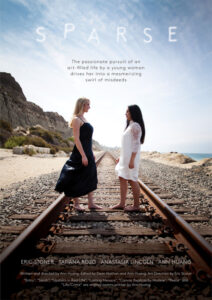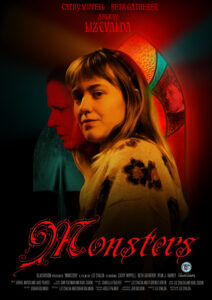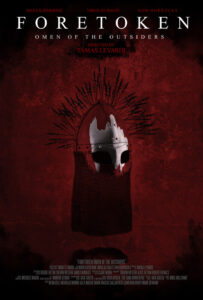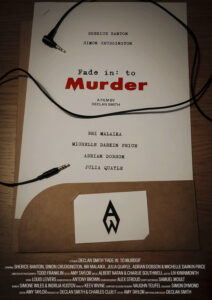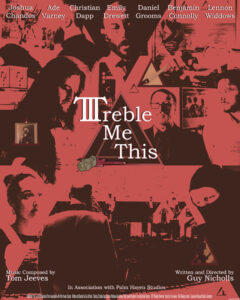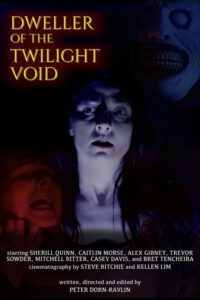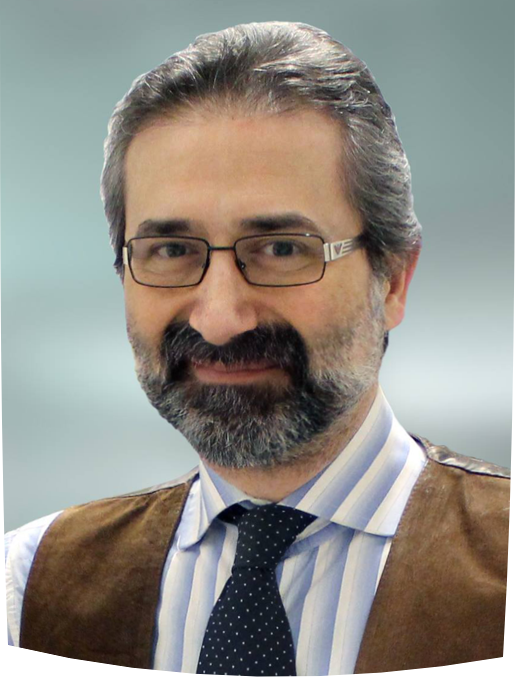
Roberto Loiacono
In 1985, during the years of study at the Institute for Figurative Arts “G.B. Bodoni ”of Turin (where he graduated in 1987 with the evaluation of 50 sixtieths) writes produces and realizes a technical documentary on the use of graphic equipment. It is still used today as educational material.
Two years later, in 1987 he founded the F.D.T. VideoProduzioni, which in 1999 will become F.D.T. Studio, a company that deals with advertising graphics and video productions.
In 1988 Roberto Loiacono joined the Ermanno Olmi Atelier in Bassano del Grappa, at the Istituto Ipotesi Cinema which he attended for four years.
Since 1990, the F.D.T. VideoProduzioni wins all three consecutive editions of the Trento Comic Video Festival.
Since 1993, the F.D.T. VideoProductions begins an intense activity of independent video production, participating in the International Youth Cinema Festival in the Spazio Torino section with their first feature film FU COSI ‘CHE …
In 1994 the F.D.T. VideoProduzioni is once again in competition with the feature film EQUIVOX which obtains a flattering appreciation, even if it is at the Trento Festival that it achieves real success, where it earns the mention as best production of the year and for the two protagonists: Danilo Casalegno and Tito Pozzoli.
In 1995 Roberto Loiacono wrote the screenplay for the first dramatic film: EUTANASIA DI UN INCUBO.
This film also participates in the Youth Cinema Festival in the Turin Area and manages to sell more than one hundred video tapes when it is finally put on the market.
Also in 1995, the short film TERITAL 2000 – Storia al Nus was also presented; comedy that is part of the Terital trilogy and edited using scenes never used in previous films.
In 1996 Roberto Loiacono wrote the script and directed KILLER which is produced by Casalegno and Pozzoli on a limited budget.
KILLER is presented at the 14th International Youth Film Festival where it ranks first in the selection for the Turin Area.
Eight months later (in July 1997), thanks to the advertising obtained indirectly, the film is invited to participate in the: 1st Italian Film Festival Di Gallio where it ranks second.
In 1998 the F.D.T. VideoProduzioni produces a new film: DESCAMO 4. In November 1999, two days of screening at the Cinema Esedra in Turin (while the Turin Film Festival was being held at the same time) sold out. The homevideo broadcast causes the film to sell a hundred video tapes, thanks to the agreements made with some video stores.
In June 2001, after the transformation into F.D.T. Studio, begins the collaboration with Mario Cellini for the production of a very ambitious project: the realization of the horror film ZONA 3.
In July 2005, the F.D.T. Studio makes the short film TANA which enters the shortlist of 10 finalists for the Venice Film Festival 2005 in the Short Film Contest section, where it ranks third.
In July 2006 the feature film ZONA 3 was released.
In 2007 the F.D.T. Studio collaborates with Andrea Cavaletto (leading Italian cartoonist, author among many of Dylan Dog) and filmhorror.com.
Roberto Loiacono directs the short film IL PROIEZIONISTA which wins the Reign of Horror Short Movie Forum Award.
In 2008 Roberto Loiacono directed the short film BLACK & WHITE written and interpreted by Simone Nepote Andrè which won the Audience Internet Award assigned by the public to the I’ve seen films – International Short Film Festival directed by Rutger Hauer.
Also in 2008 new collaboration with Andrea Cavalletto. Roberto Loiacono directs and F.D.T. Studio with Danilo Casalegno produces the short film HELLEQUIN starring Ludmilla Radchenko. The short wins the Angela prize at the PesarHorror Fest and is aired on the TV channel COMING SOON TELEVISION.
In the following years, and still today, the activity of the F.D.T. Studio e di Roberto Loiacono has mainly turned to the creation of commercials (against violence against women created for the Nuovi Orizzonti Association), industrial videos, music and short films with a strong social connotation (the short film against Bullying in schools is from 2016, created with the Colombatto State Professional Institute).
In 2020 Roberto Loiacono resumed his cinematographic activity by making a web series “Quarantena” (made during the lockdown due to COVID-19), a short film entitled “Isolation” and starting the production of a medium-length film entitled “Apocalypse”
Hello Roberto and Thank you for granting us this interview
[MIS] First question that comes in mind, what films do you consider to be your inspiration and why?
[Roberto] As a child, my father, a great lover of the sea and sailing boats, took me to the cinema to see Steven Spielberg’s JAWS. I was so fascinated that I became interested in the director and how films were made, so I asked my father to take me to the cinema more often. So I can say that JAWS is the film that inspired me to be a film director.
[MIS] You are a Director and a Producer, where do you find yourself more?
[Roberto] I can say that I am a director by passion and a producer by necessity. Being a producer of myself allows me to be a director with complete freedom. Being able to put my vision on the screen without mediation whatsoever. Surely the role that suits me the most is the director.
[MIS] In your opinion, what are the pros and cons of a Producer who goes for directing and vice versa?
[Roberto] As far as I’m concerned, being a producer-director often means being distracted by more managerial tasks (negotiating to obtain permits, organizing collaborators, etc.). Being a director-producer means being in control of what you want to do and organizing the set according to what you want to tell on the screen. But both roles are now part of my way of making cinema.
[MIS] Talking about your short films, “Apocalypse” was a hit!, what did you enjoy mostly in directing it and what was the hardest Scene to film?
[Roberto] It was a lot of fun directing APOCALYPSE. I managed to form a really close-knit team with which I worked best. The thing I liked the most was creating the characters with the actors, modeling their acting by choreographing their movements on the screen. (I am also the director of photography and camera operator roles that I have also held for other directors. ). The most difficult scene to shoot was the slow motion sequence, with various editing cuts to match like the tiles of a mosaic and the emotions of the protagonists to be brought out without the use of lines. In all this the interpretations of the actors and the splendid music were fundamental.
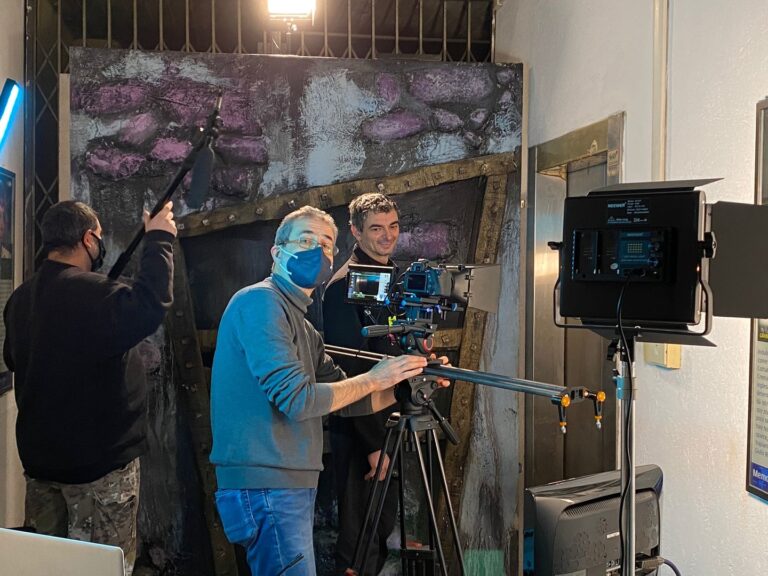
[MIS] Tell us about a story on set, during the shooting of “LIFESHOT”?
[Roberto]LIFESHOT processing took place without any particular problems or anecdotes to tell. I remember with pleasure the search for places in which to set the story (for this aspect Maria Rosaria Scicchitano, who conceived the story and Simona Galluccio, the set designer, were of fundamental importance) and that we did the shooting trying to waste as little time as possible: every pause was abolished (my double role as director-producer helped in this) because it was filmed in the production breaks of APOCALYPSE!
[MIS] In Isolation, why did you choose black and white as a color palette then you switched to Pale colors?
[Roberto]The black and white helped to focus the viewer’s attention on the actions and feelings of the character (thanks also to the absence of camera movements) in addition to this the black and white alludes to the banality of everyday life or to the unknowns and worries for the future. The ending did not have to differ much given the surprise that leads back to the initial premises, so here is the choice to use desaturated colors.
[MIS] The Opening scene in Isolation was amazing!! Why did you choose a close up on the eye?
[Roberto]I wanted to somehow prelude to the fact that we would see something that belonged exclusively to the mental sphere. That what the viewer would see was filtered by the protagonist’s “mind’s eye”.
[MIS] If you got the opportunity to remake “Isolation”, what would you do differently?
I think I would change the technical equipment with which it was shot. We did it during the first lockdown due to the covid 19 epidemic so with very limited equipment.
[MIS] How do you describe your work with Angelo Donzela?
[Roberto]I have known Angelo for many years, we are like brothers. We are both in love with cinema in all its aspects (technical and artistic) and we are always in agreement on the choice to make. We shot 5 films and at least 4 short films together. He has always been my screen counterpart. Many of the characters he played in my films represented what I would have wanted to do on screen if I was the character in the scripts I wrote. I also define him as the “engine of my passion”, because he has an enthusiasm that involves those close to him and pushes them to give their best. I feel lucky to be able to work with him.
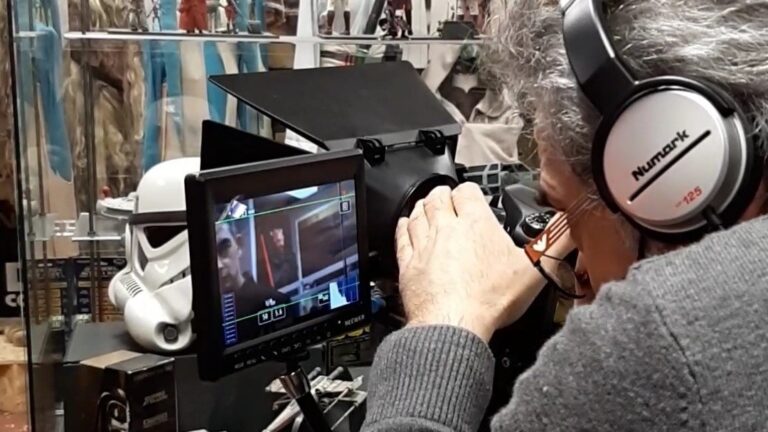
[MIS] What do you feel is missing in the Independent Filmmaking industry today?
[Roberto] Until a few years ago, there was no distribution, no way of showing independent products to the general public. Keep in mind that I started in the 1980s and at the time it was difficult for independents like me not only to show their works but also to make them. For some time things have been changing, many streaming platforms dedicated to independents have been born and festivals such as Monthly Indie Shorts are doing a very important job for us: they help us to make our works known to the public. But we are only at the beginning the road is long.
[MIS] What is the advice you’d like to share with new filmmakers?
[Roberto] Try to keep your independence especially when you are at the beginning of your film career. Represent your vision on the screen, without compromise. Do not be too influenced by the trends or fashions of the moment, a film must remain over time and communicate even after many years.
[MIS] What are your next projects?
[Roberto] I am working on 3 new projects. The first, in collaboration with a prominent Italian screenwriter ANDREA CAVALETTO (he writes for the DYLAN DOG comic series and has written several independent films and graphic novels), is a rural horror feature film. The second is an old screenplay of mine that I’m revising: IL BUIO, also a feature-length drama film with supernatural veins. The last, what will probably be the first to be made is a thriller medium-length film. I’m writing the screenplay based on an idea by MARIA ROSARIA SCICCHITANO, who is the creator of the subject of ISOLATION and LIFESHOT.
[MIS] Any final thought at the end of this interview?
[Roberto] I would like to thank the people who have been close to me during the difficult years in which I started making films. They have always supported me by giving me a lot of help. And if now I am able to get some satisfaction it is also thanks to them, who believed in what we did. Having a close-knit team that you can trust is a very rare thing among independent filmmakers. I consider myself very lucky and I am very grateful to all of them.
